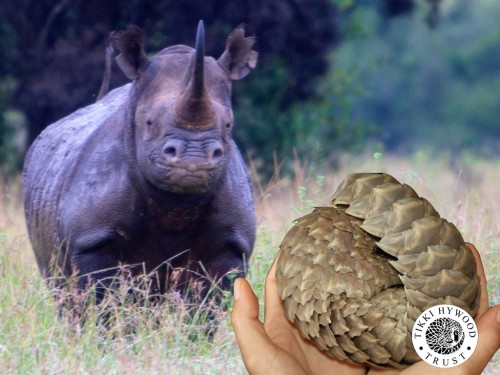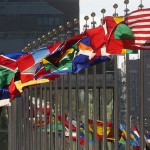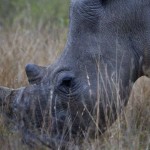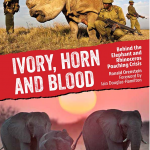Guest blogger: John M. Sellar OBE FRGS

The question is one that needs to be answered by UN Secretary-General Ban Ki Moon and his advisors ought to reflect very carefully as they determine what names to place before him.
Confused? Sorry, let me explain where I am going with this.
When the UN General Assembly adopted its Resolution[i], ‘Tackling illicit trafficking in wildlife’, last week, 17 action points were agreed upon. One of them, number 16, makes reference to possible future actions, including “consideration of the appointment of a special envoy to promote awareness and galvanize international action.”
UN Special Envoys have been used, relatively effectively, in recent decades to help garner attention and political will across a wide spectrum of issues. The individuals appointed to such positions have come from just as diverse a range of backgrounds. Some of them have been immediately-recognizable to both the general public and the political and diplomatic communities. For example, few among us would fail to know, at once, names such as Bill Clinton, who was appointed envoy to Haiti in 2009.
Several envoys have been senior ex-UN officials, or time-served national diplomats, ideally suited to the posts but whose names and faces would certainly have not been known outside diplomatic and political circles.
And then there have been what are called today ‘celebrities’. Sir Roger Moore and Angelina Jolie fit into this category.
The United Nations is far from being the only organization to make use of a well-known or well-respected figure to help promote awareness and garner support. In the realm of wildlife conservation, for instance, Leonardo DiCaprio has been of major assistance to WWF. Meantime, Prince William’s United for Wildlife initiative is (what we would call in Scotland) out-the-door with celebrities. Its numerous ‘ambassadors’ range from retired footballer, to Formula 1 champion, to Tour-de-France winner, to tennis star. Any gathering of them would undoubtedly lead to major fan- and crowd-control problems.
Setting aside my personal distaste for the current cult of celebrity, I readily acknowledge that such people can help spread awareness on matters of concern in a manner which could never be so easily accomplished by international organizations or national governments. But I think the UN needs to reflect very carefully and seriously if it chooses to go down this road.
Depending upon which media articles you read, one could be left with the impression that the UN General Assembly had somehow speedily drafted and adopted its resolution as a result of and in response to the death of a lion named Cecil or the actions of the dentist who allegedly killed it. The coverage of that incident has been mind-boggling and the late Cecil now has his very own Wikipedia page. This, in itself, can surely act as a warning regarding the cult of celebrity.
You might be inclined to say, from a public awareness or publicity standpoint, that Cecil’s demise, and the reprehensible circumstances of it, were the most marvellous coincidence in inadvertently but very helpfully bringing the attention of the world (or apparently not insignificant numbers of its citizens) to the Resolution’s adoption. Personally, I worry that very mixed messages have been sent out relating to what prompted action by the General Assembly and, instead of generating widespread concern over wildlife trafficking and a commitment to combat it, they have motivated reams of ranting about whether hunting of creatures is morally acceptable and whether it might actually contribute meaningfully and practically to conservation.
That may be a very worthwhile debate, and one which deserves to take place, but it must not be confused with what the UN has done or, importantly, how it might act in the future. Cecil’s death has nothing, nothing whatsoever, to do with the discussions which led to the Resolution’s adoption. Those commentators and reporters who are trying to link the two things are misguided.
You might argue that some of the information which is emerging about Cecil’s death indicates that unsportsmanlike behaviour or poor hunting etiquette strayed into the realm of criminality and that any poaching which took place had a commercial and international nature, as its aim was to encourage a foreign hunter to hand over a substantial fee for his ‘trophy’. If so, then there are plenty other illicit game hunting examples from countries in Africa, and elsewhere, that fall into such a category. Each deserves investigation and, where appropriate, prosecution.
In my view, though, that is not what the Resolution is intended to address. And neither is it something that any envoy should spend her or his time on. I would go further, an envoy should not go anywhere near debates on hunting or enter into any discussions regarding whether trade in wildlife (in whatever form) should occur. To avoid setting down my reasons for that statement, I ask readers to look at the introductory section of the Resolution and, in particular, consider carefully the paragraph beginning, “Emphasizing…”
To my mind, the Resolution’s clear and consistent message is that illicit wildlife trafficking is serious crime. What is more, it is organized crime. It is surely no mistake that the word ‘trafficking’ was chosen for the title of this document and I applaud whoever drafted it for being so specific.
Trafficking is what occurs in the middle of the very long chain of criminality associated with wildlife crime. Many ‘links’ make up the trafficking stage. They can include: delivering poached fauna or illegally-harvested flora from the initial and original crime locus into the hands of dealers and processors; the transportation of them to points of export, which may be several countries distant; the concealment of those items within cargo or baggage; the bribery or corruption of relevant officials to facilitate that export and the routing through nations of transit; their smuggling or fraudulent import into the final country of destination; and further processing, manufacture, wholesale and retail. (That is not intended to be an exhaustive list of types of trafficking.)
Whilst poaching and consumption are clearly and inevitably associated with trafficking, I do not view them as featuring within the primary focus of the Resolution. This is completely and utterly appropriate. It is trafficking we are currently failing to disrupt sufficiently and it is particularly those who control and organize trafficking who have yet to be brought to justice in adequate numbers.
It is because we have yet to do enough to shatter the middle links in the chains that I believe the General Assembly would be well-advised to consider the appointment of a special envoy. Not to promote awareness but to “galvanize international action”.
To do that, and to do it in the right places – I have some specific countries in mind – and do it with the right people – I have many law enforcement and prosecution agencies in mind – you do not need an Olympic medal winner or the recipient of an Oscar. You require someone: who really knows what they are talking about; who has the gravitas and background to interact with and gain the respect and commitment of senior politicians, judiciary, heads of enforcement bodies and prosecution authorities; and who will remain utterly objective and divorced from issues pertaining to Cecil or how best to light an ivory bonfire.
It actually shouldn’t be too difficult. But what you should not do is follow the advice of one famous silver-screen senior policeman and ’round up the usual suspects’. In fact, if the man-in-the-street subsequently recognizes the name of the UN Special Envoy against Wildlife Trafficking, you have chosen the wrong person!
Not that they will, but if the Secretary-General’s advisors wish to contact me, I have three possible candidates in mind. And don’t worry; I am not one of them.
[i] https://cites.org/sites/default/files/eng/news/pr/2015/N1522120-E.pdf




